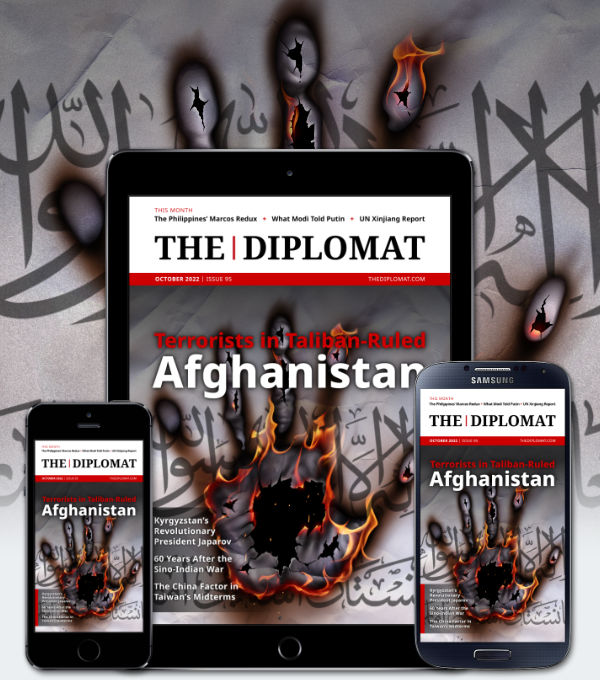| Welcome to the latest issue of Diplomat Brief. This week our top story explores Vietnam’s high-wire diplomatic balancing act. We also have an interview with Nurseit Niyazbekov, an assistant professor in the Department of International Relations and Regional Studies at KIMEP University, about politics in Kazakhstan since the violence of January 2022. |
| Story of the week |  | Diplomacy Can Vietnam Weather the Coming Era of Great Power Competition?What Happened: Vietnam, like so many countries around the world, is struggling to stay neutral in the growing geopolitical competition between China and the United States, as well as between Russia and the West. Hanoi has long trumpeted its flexible “bamboo diplomacy,” which is supposed to avoid over-reliance on any one partner while keeping friendly ties with all. In reality, that’s more difficult than it sounds, given growing polarization abroad and anti-China nationalism at home. Our Focus: For Vietnam, the balancing act is not new. “The bitter experience of being a geopolitical victim of the competition between the U.S., the Soviet Union, and China during the Cold War and the costs of leaning towards one side (the Soviet Union) is embedded in the DNA” of the Vietnamese Communist Party, writes John Nielsen, a senior analyst at the DIIS who formerly served at the Danish ambassador to Vietnam. Sharing a border with its much-larger neighbor, Vietnam has little choice but to seek to keep ties with China as friendly as possible. Yet China’s growing assertiveness in the South China Sea has damaged Beijing’s image in Vietnam, leading to rare protests in 2014. What Comes Next: “Vietnamese policymakers know that bowing too much to Chinese pressure could threaten the VCP’s legitimacy,” Nielsen writes. At the same time, leaders “will keep diplomatic channels and economic engagement open,” and “Vietnam will avoid entering any formal alliance aimed at countering China’s rise.” Ultimately, how bad China-Vietnam relations get may be up to Beijing – aggressive actions in disputed maritime areas could force Hanoi to take a more assertive stance in response. Read this story |
| Behind the News | INTERVIEW Nurseit NiyazbekovNurseit Niyazbekov, an assistant professor in the Department of International Relations and Regional Studies at KIMEP University in Almaty, Kazakhstan, on why President Tokayev has called for early elections: “Calling extraordinary elections right now is wise for the regime because Tokayev enjoys high support today. 2024 is too far from now and the regime does not want to take chances.” Read the interview |
| This Week in Asia | Northeast Asia China’s Big Leadership RevealThe 20th National Congress of the Chinese Communist Party is in full swing, having kicked off on October 16 with Xi Jinping’s work report. Xi’s position at the top of the CCP is a foregone conclusion, but who will join him on the Politburo Standing Committee? The results will indicate how dominant Xi is – or whether previous norms still serve as checks on his power. We should know the answer on October 23, when the new Central Committee rubber-stamps the slate of PSC members. Find out more | South Asia Imran’s Khan Electoral Success ContinuesDespite being ousted from the prime minister’s chair back in April, Imran Khan and his PTI continue to enjoy enormous popular support. In the latest sign, the PTI won six out of eight National Assembly seats in by-elections held on October 16. Bizarrely, Khan personally ran as a candidate in the six races he won (and one he lost), raising questions about the viability of the PTI as a whole versus Khan’s individual popularity. Find out more | Southeast Asia Campaigning Begins for Malaysian General ElectionMalaysia’s political parties are preparing to hit the campaign trail after Prime Minister Ismail Sabri Yaakob dissolved Parliament and announced a snap general election on October 10. Ismail Sabri’s United Malays National Organisation (UMNO), which was sensationally defeated at the last general election in 2018, is banking on a decisive victory after nearly three years of participation in unstable coalition governments. The exact date of the general election is due to be announced this week, but is expected to fall in early November. While the formal campaign period has not yet begun, the frenzy of horse-trading and informal campaigning is well underway. Find out more | Central Asia Turkish Influence in Central Asia on the RiseOn the sidelines of the Sixth Conference on Interaction and Confidence Building Measures in Asia (CICA) summit last week in Astana, Turkish President Recep Tayyip Erdogan was quite popular. He met with the Kazakh president (and they played table tennis) as well as Russian President Vladimir Putin. Erdogan’s popularity at the summit is, in part, a reflection of Turkey’s rising cachet in the region as a viable alternative partner. Find out more |
| Visualizing APAC |  | On October 12, 143 members of the United Nations General Assembly voted to condemn Russia’s annexation of Ukrainian territory. 35 countries abstained – including 12 in the Asia-Pacific. See the full picture |
| Word of the Week | Politics 元老Yuánlǎo, meaning “senior” or “elder” in Mandarin. In Chinese politics, it refers to nominally retired but still influential senior leaders in the CCP. Find out more |
|  |




